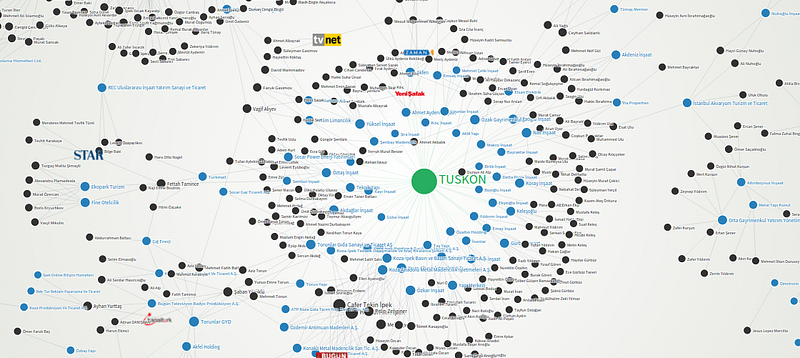Turkey, where social networks are regime’s new guard dogs
Turkey’s iron-hand ruler Recep Tayyip Erdoğan and his Justice and Development Party (AKP) have been enjoying an incontestable power which gradually converts itself to an autocratic regime. The roots of AKP’s unshakeable reign are widely debated; it could be the traditional rural Turkish culture, the religion, the sustainable poverty neatly imposed on the society and turning an entire nation into a charity case, or all of the above… However one aspect of Turkey’s Islamist-conservative regime is rather overlooked; its dependence on social networks.
AKP considers itself to be a descendant of both Adnan Menderes’s Democrat Party of the 1950’s and Necmettin Erbakan’s National Viewpoint movement of the 1970’s to the 90’s. The party indubitably inherits most of its populist and conservative tendencies from these two political movements; however more crucially, it happens to own the social networks consolidated by these two against the army-backed Kemalist state for decades. These networks are composed of all walks of traditional rural life; from poor villagers to rich landowners turned into businessmen (aka. Anatolian Tigers) mostly by reappropriating wealth of non-Muslim bourgeoisie “cleansed off” the Anatolian territory. These networks of Anatolian Tigers has been existant for decades, however it was AKP who replaced them with their secular rivals dominating the market. As a matter of fact, AKP integrated these networks into the public-private joint capital so irreversibly that the system could never work properly without these networks and the party-state coordinating them. A project called Mülksüzleştirme Ağları / Networks of Dispossession based on Graph Commons network mapping tool, aims to visualize these networks.

However, business networks are not the only constituents of AKP’s thinly-veiled autocracy. The party has 8,5 million members, which is equal to around 72% of total party membership in Turkey. There are also an innumerable amount of religious and cultural associations close to the party or directly to the Erdoğan family, the İmam Hatip schools supposedly aiming to satisfy the clergy need of the country but rather create the “religious generation” Erdoğan proudly announced that they raised. Comparing to its rivals, AKP is hardly a political party but a society within, which sets its sights on replacing the core of Turkish society permanently.
In this context, Social Network Analysis (SNA) appears to be a very handy sociological tool to reveal AKP’s functioning. A recent work by Hafıza Kolektifi (the Memory Collective) published a network map of AKP’s troll army, the internet users they hired to dominate the social media, a field where AKP repeatedly failed due to its shortcomings in digital cultural capital. Also, Efe Kerem Sözeri, in a number of occasions, revealed AKP’s internet operations, one of which also involved a President’s Office official.


An intriguing response to these findings came from an academic called Filiz Gündüz from Marmara University. Gündüz, who happens to be an AKP member, claimed (or rather tried to claim) that the designation “AK Trolls” was actually some sort of symbolic violence (although Erdoğan’s own daughter Sümeyye Erdoğan is known to call them “our trolls”), even a form of racism. Gündüz also accused the Hafıza Kolektifi article of having no methodology, even though the work cleary stated that they used closeness and betweenness centralities for network analysis, and Force Atlas 2 for data visualisation; all of which are widely accepted methods in academic works.

Gündüz, while trying to negate the existence of AK networks, actually presents a picture perfect example of another field these networks try to impose their hegemony; the academy. Gündüz is a faculty member of Marmara University Faculty of Communication, where former dean (and unsurprisingly AKP member) Yusuf Devran created a non-AKP-free environment, even at the expense of expelling some faculty members and threatening dissident students. She’s also holder of a YÖK research scholarship, a directly government initiated authority founded after the 1980 coup. The newspaper she writes, Star, is owned by a businessman who openly declared his love for Recep Tayyip Erdoğan in the most homoerotic way possible; and the column Açık Görüş is a revolving door of pro-AKP academics who want to climb their career ladders rather swiftly. Her denying the existence of AKP social networks and discarding Social Network Analysis as a valid method of analysing social interactions, should be single-handedly enough motivation for in-depth SNA analysis which would eventually reveal the anatomy of an autocratic party-state regime.

Be First to Comment